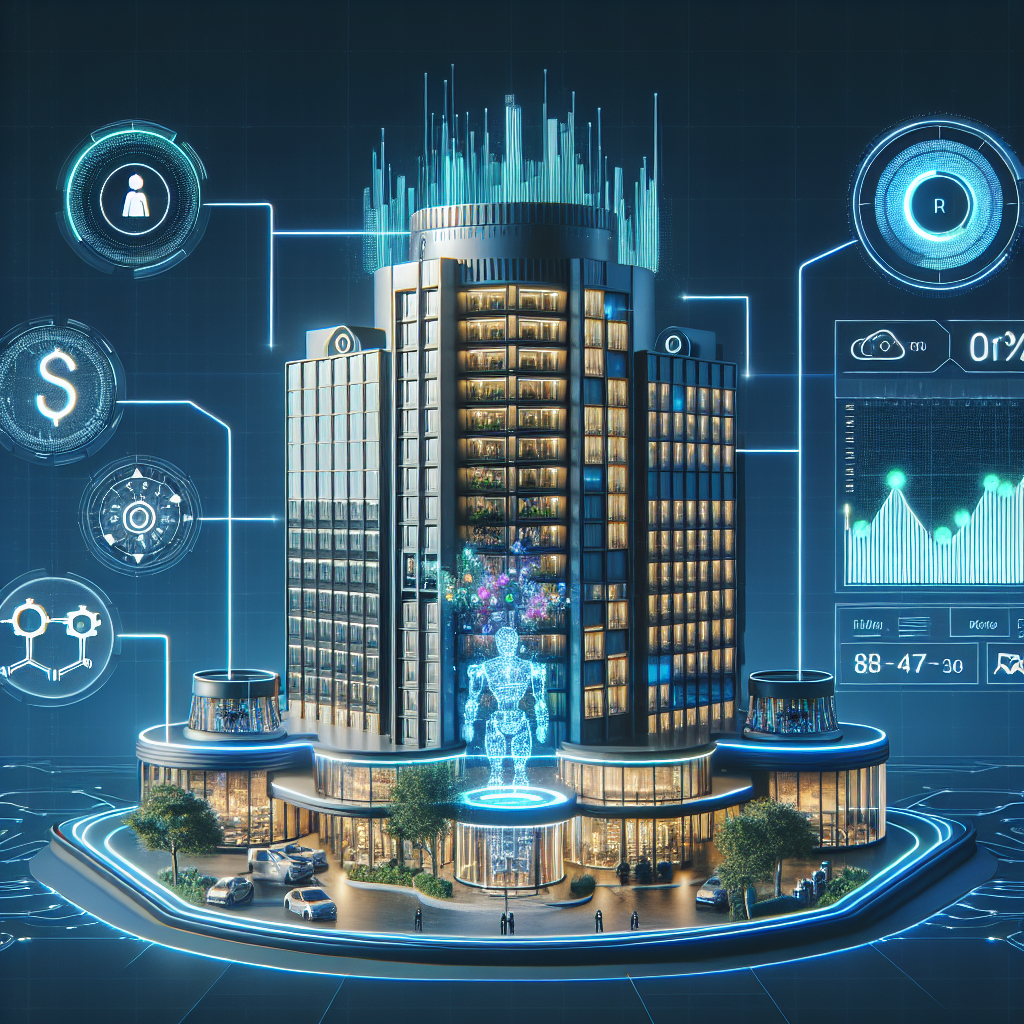Artificial Intelligence (AI) and Machine Learning are revolutionizing the way revenue management is handled in the hotel industry. These technologies are enabling hotels to optimize pricing strategies, forecast demand more accurately, and personalize offers for guests. In this article, we will explore how AI and Machine Learning are transforming revenue management in hotels and the benefits they bring to the industry.
1. Optimization of Pricing Strategies:
AI and Machine Learning algorithms can analyze vast amounts of data, including historical booking patterns, competitor pricing, and market trends, to determine the optimal pricing strategy for a hotel. These algorithms take into account various factors such as demand, seasonality, and special events to recommend prices that maximize revenue. By using AI-powered pricing tools, hotels can dynamically adjust room rates in real-time based on demand, occupancy levels, and competitor pricing, leading to increased revenue and profitability.
2. Accurate Demand Forecasting:
One of the key challenges in revenue management is forecasting demand accurately. Traditional methods rely on historical data and manual analysis, which can be time-consuming and prone to errors. AI and Machine Learning can analyze large datasets in real-time to predict future demand with a high degree of accuracy. By leveraging these predictive analytics tools, hotels can anticipate fluctuations in demand, adjust pricing strategies accordingly, and optimize inventory management to maximize revenue.
3. Personalized Offers for Guests:
AI and Machine Learning enable hotels to personalize offers and services for guests based on their preferences, booking history, and behavior. By analyzing guest data and interactions, hotels can tailor promotions, packages, and room upgrades to meet individual needs and enhance the guest experience. Personalization not only increases guest satisfaction but also drives loyalty and repeat bookings, ultimately leading to higher revenues for the hotel.
4. Enhanced Decision-Making:
AI and Machine Learning algorithms provide hotel revenue managers with valuable insights and recommendations to make informed decisions. These technologies can identify trends, patterns, and correlations in data that may not be apparent to human analysts, enabling revenue managers to develop more effective strategies and tactics. By leveraging AI-powered analytics tools, hotels can make faster, more accurate decisions that drive revenue growth and competitive advantage.
5. Improved Operational Efficiency:
AI and Machine Learning can automate repetitive tasks and streamline processes in revenue management, leading to improved operational efficiency. These technologies can analyze data, generate reports, and make recommendations in real-time, freeing up revenue managers to focus on strategic initiatives and revenue-generating activities. By automating routine tasks, hotels can reduce costs, increase productivity, and optimize resource allocation, ultimately improving the bottom line.
FAQs:
Q: How can AI and Machine Learning help hotels optimize pricing strategies?
A: AI and Machine Learning algorithms can analyze vast amounts of data, including historical booking patterns, competitor pricing, and market trends, to determine the optimal pricing strategy for a hotel. These algorithms take into account various factors such as demand, seasonality, and special events to recommend prices that maximize revenue.
Q: What are the benefits of accurate demand forecasting in revenue management?
A: Accurate demand forecasting enables hotels to anticipate fluctuations in demand, adjust pricing strategies accordingly, and optimize inventory management to maximize revenue. By leveraging predictive analytics tools, hotels can make informed decisions that drive revenue growth and competitive advantage.
Q: How can AI and Machine Learning personalize offers for guests in hotels?
A: AI and Machine Learning analyze guest data and interactions to tailor promotions, packages, and room upgrades based on individual preferences and behavior. Personalization not only increases guest satisfaction but also drives loyalty and repeat bookings, ultimately leading to higher revenues for the hotel.
Q: How do AI and Machine Learning enhance decision-making in revenue management?
A: AI and Machine Learning algorithms provide revenue managers with valuable insights and recommendations to make informed decisions. These technologies can identify trends, patterns, and correlations in data that may not be apparent to human analysts, enabling revenue managers to develop more effective strategies and tactics.
In conclusion, AI and Machine Learning are transforming revenue management in hotels by optimizing pricing strategies, forecasting demand accurately, personalizing offers for guests, enhancing decision-making, and improving operational efficiency. By leveraging these technologies, hotels can increase revenue, drive profitability, and deliver exceptional guest experiences, ultimately gaining a competitive edge in the industry.

